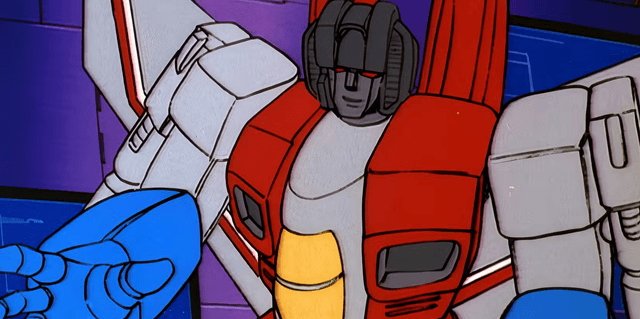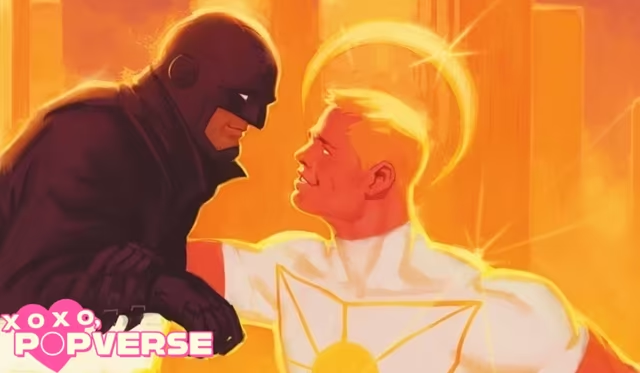If you click on a link and make a purchase we may receive a small commission. Read our editorial policy.
Fallout: From the games to the TV and back again (including the Great War), the timeline of the show explained
For anyone wondering about the Prime Video series, here's your guide to the history of Fallout's nuclear post-apocalypse

Popverse's top stories
- Every Star Wars trilogy is really a bad romantasy story and you'll never convince me otherwise
- Midnighter and Apollo from DC Comics proved that fighting a tyrant together is incredibly romantic
- Members only: Ask Ming-Na Wen, Critical Role, Gail Simone, Karl Urban, Chris Claremont, Denys Cowan, and more your questions as part of ECCC x Popverse member exclusive!
To the surprise of many fans, Amazon Prime Video's Fallout show takes place in the same continuity as the games
, and is part of the official canon of the games moving forward.“We’re careful about the timeline,” Bethesda Game Studios director Todd Howard told IGN in a recent interview, adding, “There might be a little bit of confusion in some places. But everything that happened in the previous games, including New Vegas, happened. We’re very careful about that.”
That's an exciting concept for hardcore fans of the games, but for newcomers to the series or just casual players, that idea means very little. For it to have the same impact it has on true Pip-Boys, you'd have to understand Fallout continuity. And to do that, what you'd need is a historical timeline of the Fallout universe, which is exactly what you're going to get in this article.
Since the history of the games isn't broken down into eras (like, say, the Star Wars universe), I've gone ahead and used each of the four games as a way to deliniate time periods. So just remember: these are eras I've created for this article - don't take them as official Bethesda designations.
Let's begin with the time before the first game, in an era we'll call...
Between the Great War and Fallout: 2077 - 2161

you can't have a post-apocalyptic story wiithout, well, an apocalypse. For the Fallout universe, that world ending event was the Great War, a thermonuclear catastrophe that was part of a larger war between the United States and China. This event took place in 2077, roughly a century before the first official Fallout game.
For much of the game series' history, this era was just a distant prologue. However, in 2018, Fallout publihser Bethesda Game Studios released Fallout 76, a game that served as a prequel to the first game and thus fit into our first era.
Between Fallout and Fallout 2: 2161 - 2241

Our second era is the longest between games - a total of 80 in-universe years pass between the first Fallout and its sequel. It makes sense, then, that not one but two games would take place in this interim period, Fallout Tactics: Brotherhood of Steel and Fallout: Brotherhood of Steel.
As you can probably tell by those (admittedly confusing) names, this period was a dynamic one for the sect known as the Brotherhood of Steel. The era came to a close when the town of Arroyo suffered a calamitous draught, prompting the main character known as the Chosen One to go looking foro a device that wold restore greenery to the desolate landscape.
Between Fallout 2 and Fallout 3: 2241 - 2277

Not a ton is known abot the 30 years that pass in between the second and third Fallout games. We get a little bit of history via the childhood of or next main character (starting in around 2258), but that history is only personal until 2277, when the main character leaves Vault 101 (which was meant to never be opened) and sets in motion the events of Fallout 3.
Between Fallout 3 and Fallout 4: 2277 - 2287

In contrast to its predecessor, this era is packed with known history. Counting the third and forth core games, this era consists of four games - Fallout 3, Fallout: New Vegas, Fallout Shelter Online, and Fallout 4.
Marked by major events in areas that used to be Boston, Washington DC, and Las Vegas, this era sees some of the biggest developments for Vault communities - enclaves of people who survived the apocalypse in large, protected underground chambers - and ends with a great number of the Brotherhood of Steel being wiped out.
Between Fallout 4 and Amazon Prime Video's Fallout: 2287 - 2296

All this brings us to the "present" of Fallout's history, an era that will begin, in our world, with the release of Prime's Fallout streaming series. It's a show that offered a big twist on the canon of Fallout for longtime fans (No, we won't spoil it, but it involves Shady Sands, a well-known location in the games. I will say no more.) So far, though, this is the furthest into the timeline that Fallout has managed... with the key words being "so far."
After all, since this I'm trying to make this as comprehensive a timeline as possible, there's one more qestion I can answer.
Will there be a Fallout 5?

Great news, Nuka-Cola drinkers: a Fallout 5 is officially on the way, as Bethesda's Todd Howard confirmed all the way back in 2022. The bad news, though, is that it's going to be a long time before we get it.
"[The games] do take a while," Howard said, "I wish they came out faster, I really do, we’re trying as hard as we can, but we want them to be as best as they can be for everybody."
Two years later, there's still no word on when we'll see the fifth core Fallout game, but that doesn't mean we haven't seen progress. Starfield, which was on Bethesda's plate when Howard made this statement, is available now, with the sixth Elder Scrolls game next in the pipeline. Perhaps Fallout will be the next big project on Bethesda's plate after that, especially with Amazon's show gearing up to be a hit. And if that's the case, we may be returning to everyone's favorite post-apocalyptic open world sooner than we expect.
Hopefully, at least, before it becomes a reality.
Get ready to get out of your Vault and into the Fallout world - with our help, of course. Here is a guide to the Fallout timeline, how to play and watch all of Fallout, details on the Fallout cast, how the Fallout cast & crew really get the harsh humor we're looking for, as well as a Q&A with Fallout showrunners Geneva Robertson-Dworet and Graham Wagner.
Follow Popverse for upcoming event coverage and news
Find out how we conduct our review by reading our review policy
Let Popverse be your tour guide through the wilderness of pop culture
Sign in and let us help you find your new favorite thing.
















Comments
Want to join the discussion? Please activate your account first.
Visit Reedpop ID if you need to resend the confirmation email.